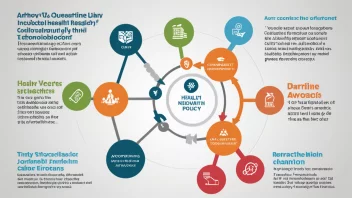The world of academic research opens doors to endless possibilities, allowing individuals to explore, discover, and innovate. For those interested in diving into this exciting field, knowing how to get started is crucial. Here’s a guide to help you kickstart your academic research journey.
The first step in your journey is to define your interests. Academic research is diverse, spanning multiple disciplines such as science, engineering, social sciences, and the humanities. Take time to reflect on the subjects that excite you. Ask yourself what topics you are passionate about and what questions you are eager to explore. Identifying your interests will help you focus your efforts and sustain your motivation throughout your research endeavors.
Once you have a general idea of your interests, immerse yourself in the literature. Conducting a literature review is a foundational step in academic research. Use academic databases and library resources to find relevant articles, journals, and books. Pay attention to the key themes, methodologies, and findings in these works. Understanding the current state of research in your chosen area will not only inform your own work but also help you identify gaps in knowledge that your research could address.
With a solid understanding of the existing literature, consider gaining practical experience. Many universities and research institutions offer opportunities for students to engage in research projects, internships, or assistantships. Participating in these programs will provide you with hands-on experience and the chance to work alongside seasoned researchers. This exposure will not only enhance your skills but also help you build a network within the academic community.
Finding a mentor is another important step in your research journey. A mentor can provide invaluable guidance, support, and encouragement as you navigate the complexities of academic research. Reach out to professors, researchers, or professionals who share your interests. Don’t hesitate to ask for advice or inquire about potential research opportunities. A good mentor can help you refine your research questions and methodologies, as well as introduce you to other scholars in your field.
After establishing a mentorship relationship, it’s time to develop a clear research question. A well-defined research question will guide your study and shape your methodology. Consider the gaps in the literature you identified earlier and think critically about how your research can address those gaps. A focused research question is essential for ensuring that your efforts are directed toward a specific goal.
When considering your research methods, familiarize yourself with various approaches relevant to your field. Depending on your research question, you may choose qualitative, quantitative, or mixed methods. Understanding the strengths and limitations of different methodologies is crucial, as it will enhance the credibility of your research.
Finally, embark on your research journey with enthusiasm and dedication. Document your process meticulously and be prepared to face challenges along the way. Research often involves unexpected twists, and being adaptable will serve you well. As you collect and analyze data, remember to connect your findings back to the broader context of your field.
In summary, starting a career in academic research requires passion, planning, and perseverance. By following these steps and remaining committed to your journey, you can contribute meaningful insights to your field and pave the way for future discoveries.
Kickstart Your Academic Research Journey Today
Kickstart your journey into academic research with essential steps and guidance tailored for aspiring scholars.






